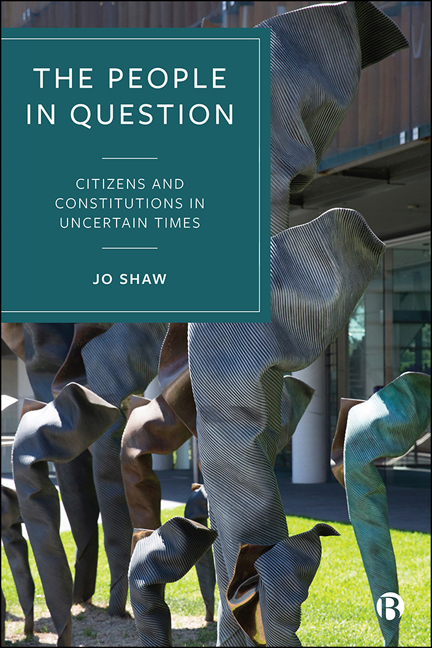2 - What Is Constitutional Citizenship and How Can We Study It?
Published online by Cambridge University Press: 18 March 2021
Summary
Introduction
Throughout Chapter 1, I placed inverted commas around the terms ‘constitutional citizen’ and ‘constitutional citizenship’, in order to suggest that they are terms of art requiring further definition and specification in the particular context in which I am using them. Rainer Forst (2014) has argued that citizenship is a ‘normatively dependent concept’ in the sense that its full meaning only emerges through context and usage and by reference to other principles and concepts, themselves contested. So when we combine citizenship and constitutions or constitutional law, we have to be doubly clear about what we are referring to, and keenly aware that we are combining and potentially comparing two sets of concepts that are rooted in specific legal, political, social and cultural contexts and about which it is accordingly difficult to generalize.
At one level, constitutional citizenship is simply the place where constitutions and citizenship meet. We have already noted in Chapter 1 that scholars, and sometimes judges, assert that the citizen is the core constitutional subject and that the citizen is central to the concept of the modern constitutional state. Another example of this genre comes from Ernst Hirsch Ballin, who asserts that ‘in an era of growing migration and trans-border connectivity, the democratic meaning of citizenship finds its fulfilment within the territoriality of states.’ Indeed, he argues that:
The territorial state provides the constitutional setting for citizenship free from ethnic privileges and prejudices. This means that the state should constitute the democratic home for the people who participate in its social, economic and cultural life. (Ballin 2016, 260)
In this book, I will treat this type of claim about the territorial state with a degree of scepticism. Substantial parts of the book recognize that the deterritorialized dimensions of citizenship are just as relevant to understanding the membership relation and even its supposedly constitutional core as are those related to the territorial state. Furthermore, the claim that this constitutional setting can set citizenship ‘free from ethnic privileges and prejudices’ seems to represent an idealism on which the state's performance in relation to citizenship often fails to deliver. But it represents a reasonable starting point for the discussion in this chapter, which explores constitutional citizenship in more detail.
- Type
- Chapter
- Information
- The People in QuestionCitizens and Constitutions in Uncertain Times, pp. 35 - 60Publisher: Bristol University PressPrint publication year: 2020

